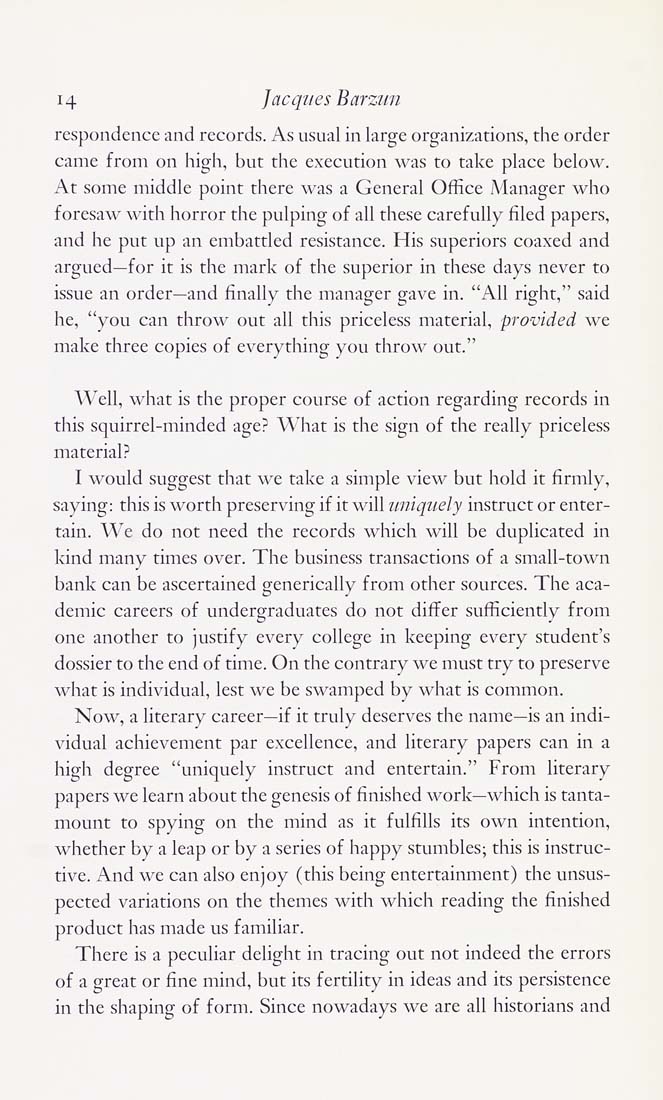Columbia Library columns (v.9(1959Nov-1960May))
(New York : Friends of the Columbia Libraries. )
|
||
|
|
|
|
| v.9,no.2(1960:Feb): Page 14 |

14 Jacques Barzun respondence and records. As usual in large organizations, the order came from on high, but the execution was to take place below. At some middle point there was a General Office Manager who foresaw with horror the pulping of all these carefully filed papers, and he put up an embattled resistance. His superiors coaxed and argued—for it is the mark of the superior in these days never to issue an order—and finally the manager gave in. "All right," said he, "you can throw out all this priceless material, provided we make three copies of everything you throw out." Well, what is the proper course of action regarding records in this squirrel-minded age? What is the sign of the really priceless material? I would suggest that we take a simple view but hold it firmly, saying: this is worth preserving if it will uniquely instruct or enter¬ tain. We do not need the records which will be duplicated in kind many times over. The business transactions of a small-town bank can be ascertained generically from other sources. The aca¬ demic careers of undergraduates do not differ sufficiently from one another to justify every college in keeping every student's dossier to the end of time. On the contrary we must try to preserve what is individual, lest we be swamped by what is common. Now, a literary career—if it truly deserves the name—is an indi¬ vidual achievement par excellence, and literary papers can in a high degree "uniquely instruct and entertain." From Uterary papers we learn about the genesis of finished work—which is tanta¬ mount to spying on the mind as it fulfills its own intention, whether by a leap or by a series of happy stumbles; this is instruc¬ tive. And we can also enjoy (this being entertainment) the unsus¬ pected variations on the themes with which reading the finished product has made us familiar. There is a peculiar delight in tracing out not indeed the errors of a great or fine mind, but its fertility in ideas and its persistence in the shaping of form. Since nowadays we are all historians and |
| v.9,no.2(1960:Feb): Page 14 |







